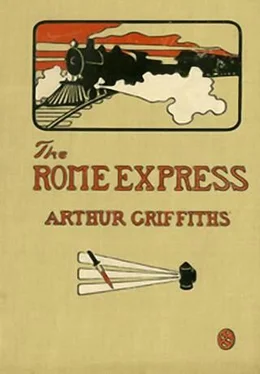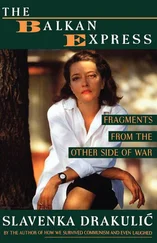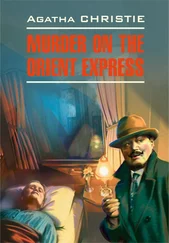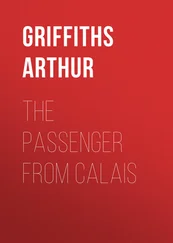Arthur Griffiths - The Rome Express
Здесь есть возможность читать онлайн «Arthur Griffiths - The Rome Express» весь текст электронной книги совершенно бесплатно (целиком полную версию без сокращений). В некоторых случаях можно слушать аудио, скачать через торрент в формате fb2 и присутствует краткое содержание. Жанр: Детектив, на английском языке. Описание произведения, (предисловие) а так же отзывы посетителей доступны на портале библиотеки ЛибКат.
- Название:The Rome Express
- Автор:
- Жанр:
- Год:неизвестен
- ISBN:нет данных
- Рейтинг книги:3 / 5. Голосов: 1
-
Избранное:Добавить в избранное
- Отзывы:
-
Ваша оценка:
- 60
- 1
- 2
- 3
- 4
- 5
The Rome Express: краткое содержание, описание и аннотация
Предлагаем к чтению аннотацию, описание, краткое содержание или предисловие (зависит от того, что написал сам автор книги «The Rome Express»). Если вы не нашли необходимую информацию о книге — напишите в комментариях, мы постараемся отыскать её.
The Rome Express — читать онлайн бесплатно полную книгу (весь текст) целиком
Ниже представлен текст книги, разбитый по страницам. Система сохранения места последней прочитанной страницы, позволяет с удобством читать онлайн бесплатно книгу «The Rome Express», без необходимости каждый раз заново искать на чём Вы остановились. Поставьте закладку, и сможете в любой момент перейти на страницу, на которой закончили чтение.
Интервал:
Закладка:
Who make up this curious throng, and what strange morbid motives drag them there? Those fat, comfortable-looking women, with their baskets on their arms; the decent workmen in dusty blouses, idling between the hours of work; the riffraff of the streets, male or female, in various stages of wretchedness and degradation? A few, no doubt, are impelled by motives we cannot challenge-they are torn and tortured by suspense, trembling lest they may recognise missing dear ones among the exposed; others stare carelessly at the day's "take," wondering, perhaps, if they may come to the same fate; one or two are idle sightseers, not always French, for the Morgue is a favourite haunt with the irrepressible tourist doing Paris. Strangest of all, the murderer himself, the doer of the fell deed, comes here, to the very spot where his victim lies stark and reproachful, and stares at it spellbound, fascinated, filled more with remorse, perchance, than fear at the risk he runs. So common is this trait, that in mysterious murder cases the police of Paris keep a disguised officer among the crowd at the Morgue, and have thereby made many memorable arrests.
"This way, gentlemen, this way;" and the keeper of the Morgue led the party through one or two rooms into the inner and back recesses of the buildings. It was behind the scenes of the Morgue, and they were made free of its most gruesome secrets as they passed along.
The temperature had suddenly fallen far below freezing-point, and the icy cold chilled to the very marrow. Still worse was an all-pervading, acrid odour of artificially suspended animal decay. The cold-air process, that latest of scientific contrivances to arrest the waste of tissue, has now been applied at the Morgue to preserve and keep the bodies fresh, and allow them to be for a longer time exposed than when running water was the only aid.
There are, moreover, many specially contrived refrigerating chests, in which those still unrecognised corpses are laid by for months, to be dragged out, if needs be, like carcasses of meat.
"What a loathsome place!" cried Sir Charles. "Hurry up, Jack! let us get out of this, in Heaven's name!"
"Where's my man?" quickly asked Colonel Papillon in response to this appeal.
"There, the third from the left," whispered M. Flocon. "We hoped you would recognise the corpse at once."
"That? Impossible! You do not expect it, surely? Why, the face is too much mangled for any one to say who it is."
"Are there no indications, no marks or signs, to say whether it is Quadling or not?" asked the Judge in a greatly disappointed tone.
"Absolutely nothing. And yet I am quite satisfied it is not him. For the simple reason that-"
"Yes, yes, go on."
"That Quadling in person is standing out there among the crowd."
CHAPTER XX
M. Flocon was the first to realise the full meaning of Colonel Papillon's surprising statement.
"Run, run, La Peche! Have the outer doors closed; let no one leave the place."
"Draw back, gentlemen!" he went on, and he hustled his companions with frantic haste out at the back of the mortuary chamber. "Pray Heaven he has not seen us! He would know us, even if we do not him."
Then with no less haste he seized Colonel Papillon by the arm and hurried him by the back passages through the office into the outer, public chamber, where the astonished crowd stood, silent and perturbed, awaiting explanation of their detention.
"Quick, monsieur!" whispered the Chief; "point him out to me."
The request was not unnecessary, for when Colonel Papillon went forward, and, putting his hand on a man's shoulder, saying, "Mr. Quadling, I think," the police officer was scarcely able to restrain his surprise.
The person thus challenged was very unlike any one he had seen before that day, Ripaldi most of all. The moustache was gone, the clothes were entirely changed; a pair of dark green spectacles helped the disguise. It was strange indeed that Papillon had known him; but at the moment of recognition Quadling had removed his glasses, no doubt that he might the better examine the object of his visit to the Morgue, that gruesome record of his own fell handiwork.
Naturally he drew back with well-feigned indignation, muttering half-unintelligible words in French, denying stoutly both in voice and gesture all acquaintance with the person who thus abruptly addressed him.
"This is not to be borne," he cried. "Who are you that dares-"
"Ta! ta!" quietly put in M. Flocon; "we will discuss that fully, but not here. Come into the office; come, I say, or must we use force?"
There was no escaping now, and with a poor attempt at bravado the stranger was led away.
"Now, Colonel Papillon, look at him well. Do you know him? Are you satisfied it is-"
"Mr. Quadling, late banker, of Rome. I have not the slightest doubt of it. I recognise him beyond all question."
"That will do. Silence, sir!" This to Quadling. "No observations. I too can recognise you now as the person who called himself Ripaldi an hour or two ago. Denial is useless. Let him be searched; thoroughly, you understand, La Peche? Call in your other men; he may resist."
They gave the wretched man but scant consideration, and in less than three minutes had visited every pocket, examined every secret receptacle, and practically turned him inside out.
After this there could no longer be any doubt of his identity, still less of his complicity in the crime.
First among the many damning evidences of his guilt was the missing pocketbook of the porter of the sleeping-car. Within was the train card and the passengers' tickets, all the papers which the man Groote had lost so unaccountably. They had, of course, been stolen from his person with the obvious intention of impeding the inquiry into the murder. Next, in another inner pocket was Quadling's own wallet, with his own visiting-cards, several letters addressed to him by name; above all, a thick sheaf of bank-notes of all nationalities-English, French, Italian, and amounting in total value to several thousands of pounds.
"Well, do you still deny? Bah! it is childish, useless, mere waste of breath. At last we have penetrated the mystery. You may as well confess. Whether or no, we have enough to convict you by independent testimony," said the Judge, severely. "Come, what have you to say?"
But Quadling, with pale, averted face, stood obstinately mute. He was in the toils, the net had closed round him, they should have no assistance from him.
"Come, speak out; it will be best. Remember, we have means to make you-"
"Will you interrogate him further, M. Beaumont le Hardi? Here, at once?"
"No, let him be removed to the Prefecture; it will be more convenient; to my private office."
Without more ado a fiacre was called, and the prisoner was taken off under escort, M. Flocon seated by his side, one policeman in front, another on the box, and lodged in a secret cell at the Quai l'Horloge.
"And you, gentlemen?" said the Judge to Sir Charles and Colonel Papillon. "I do not wish to detain you further, although there may be points you might help us to elucidate if I might venture to still trespass on your time?"
Sir Charles was eager to return to the Hotel Madagascar, and yet he felt that he should best serve his dear Countess by seeing this to the end. So he readily assented to accompany the Judge, and Colonel Papillon, who was no less curious, agreed to go too.
"I sincerely trust," said the Judge on the way, "that our people have laid hands on that woman Petitpre. I believe that she holds the key to the situation, that when we hear her story we shall have a clear case against Quadling; and-who knows?-she may completely exonerate Madame la Comtesse."
During the events just recorded, which occupied a good hour, the police agents had time to go and come from the Rue Bellechasse.
Читать дальшеИнтервал:
Закладка:
Похожие книги на «The Rome Express»
Представляем Вашему вниманию похожие книги на «The Rome Express» списком для выбора. Мы отобрали схожую по названию и смыслу литературу в надежде предоставить читателям больше вариантов отыскать новые, интересные, ещё непрочитанные произведения.
Обсуждение, отзывы о книге «The Rome Express» и просто собственные мнения читателей. Оставьте ваши комментарии, напишите, что Вы думаете о произведении, его смысле или главных героях. Укажите что конкретно понравилось, а что нет, и почему Вы так считаете.












